The Mercury Rev is a band of many qualities: quixotic, annoying, totally awesome. The band, now based in Woodstock, has been around for almost twenty years, and one thing they have never been is boring (although they once came close). Their new record, Snowflake Midnight, comes out this month—as does a free download-only album of other material called Strange Attractor—and it’s a welcome evolutionary uptick in the legacy of a band that has managed to satisfy its fans year after year despite never quite giving them what they want.
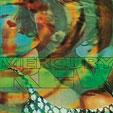
1991
Yerself Is Steam.
After Flaming Lips guitarist Jonathan Donahue splits with Wayne Coyne, he heads back to Buffalo to re-form his old band, the Mercury Rev, whose early demo tape had come to the attention of the prestigious Rough Trade label. After a fitful start with mad-genius singer David Baker—as well as a guitarist-clarinetist named Grasshopper—the fivesome record their debut album, a collection of woozy, sprawling jams punctuated by squalls of screechy noise evocative of, well, a bad trip. Critics approve, despite having to fast-forward through 90 tracks of silence to get to the album’s worthy final cut.
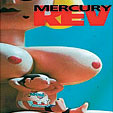
1993
BOCES.
With intra-band relations getting strained—Baker attacked Grasshopper with a spoon on a commercial flight—Mercury Rev acts out with a massive sophomore effort, recorded in a barn, that plays like it’s intended to destroy sensitive eardrums, veering from textured pop to giant, clashing, overwhelming walls of noise. It’s genius in its own messy, wild way—and it’s to be the last album Baker records with the band.
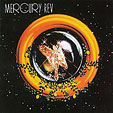
1995
See You on the Other Side.
Hold up: Are these the same guys who got booted off the stage at Lollapalooza for playing too loud? On See You on the Other Side, the Rev turns the volume way, way down, trading walls of noise for a jazzy collection of warmth-suffused pop tunes. It might be their weirdest effort to date—if only because it’s not confrontational in the least; swampy reeds and foresty flutes weave in and out in thoughtful, complicated ways.
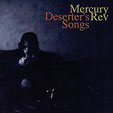
1998
Deserter’s Songs.
The band’s masterpiece —and its biggest commercial success to date, to the surprise of no one more than the band itself. Donahue’s cracked, achy voice comes into its own, amid dazzling, ethereal dream-pop.
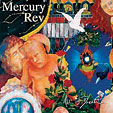
2001
All Is Dream.
Taking things to their logical (if misguided) next phase, the band kicks off its first postmillennial album with histrionic symphonic swells that would sound more at home on the Titanic soundtrack. Luckily, poignant lyrics and fitful tempo changes keep things from getting too comfy. As a bonus, Donahue is beginning to sound intriguingly like a latter-day Paul Simon.
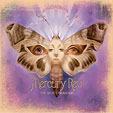
2005
The Secret Migration.
Uh-oh. Guys, where’s the weird? A collection of safe, New Age–y compositions with lyrics that devolve from mawkish to moronic, the band’s 2005 output feels depressing and silly. Fans object, loudly.
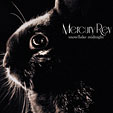
2008
Snowflake Midnight.
Ignore the pair of bland misfires that kick things off. Starting with the third track, the single “Senses on Fire,” the songs shimmer with ambient swaths of psychedelia punctuated by blasts of oddness and bombast that gesture toward, if not quite embracing, the very chaos that got us listening in the first place.